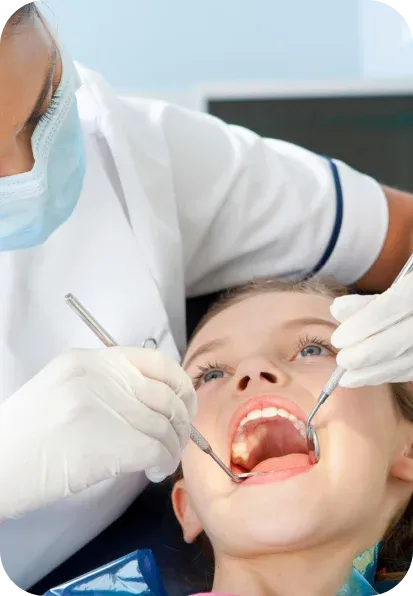Failing Restorations
Dental restorations, such as cavity fillings or dental crowns, are usually successful, solving dental pain or damage. But occasionally, your child may experience failed restorations. There are many causes of failed restorations. If you notice a problem with your child’s bite or with pain while chewing, call the pediatric dentists at Tiny Smiles Pediatric Dentistry in Woodbridge, NJ for solutions.



What Are Failing Dental Restorations For Kids?
Dental restorations repair or replace a child’s cracked or broken teeth. While modern dentistry uses advanced procedures and long-lasting materials, the restorations sometimes fail. Failing restorations cause pain in your child’s mouth because of exposed nerves. Untreated restorations that have failed can lead to serious oral health issues, including abscesses.
Common restorative treatments include fillings, crowns and root canal treatments. If any of these restorative treatments fail, your child requires urgent care attention by an experienced pediatric dentist to repair or replace the dental restoration.
The expert team of dentists at Tiny Smiles Pediatric Dentistry n Woodbridge, New Jersey, identifies the failed restoration and determines what treatment is needed. The board certified dentists at this NJ practice use advanced dentistry technology and procedures to promote your child’s dental health.
What Are the Signs of Failing Restorations?
Successful dental restorations are highly effective in maintaining your child’s oral health. Failed restorations, on the other hand, are often surprises. To spot the signs of failed restorations look for any problems with your child’s mouth. Symptoms of failed restoration include:
Restorations fail for different reasons. Your New Jersey dentist explains the warning signs of restoration failure and other dental problems during your visit.


What’s the Treatment for Failing Dental Restorations?
What Causes Failing Restorations?
Most dental restorations last for years, but these appliances fail for several reasons. A failing restoration requires urgent medical attention to stop further dental damage. The major causes for restoration failure include:
Tooth decay underneath the restoration, a condition called secondary dental caries
Damage of the restoration material caused by trauma, excessive force or bite problems
Extreme conditions in your child’s mouth, including temperature fluctuations, PH cycling, humidity or the presence of microorganisms
Poor bonding of the restoration material to the child’s tooth
Improper cavity filling or a damaged crown
Restoration material failure through wear
Damage from chewing a hard material, such as ice
Post-procedure sensitivity
If your child complains of tooth discomfort or you note any problem after a restorative treatment, consult your NJ pediatric dentist. A failed dental restoration requires a review and replacement to prevent other dental complications.

